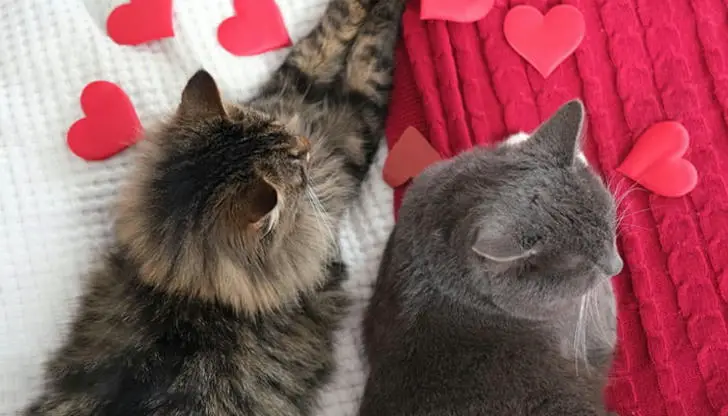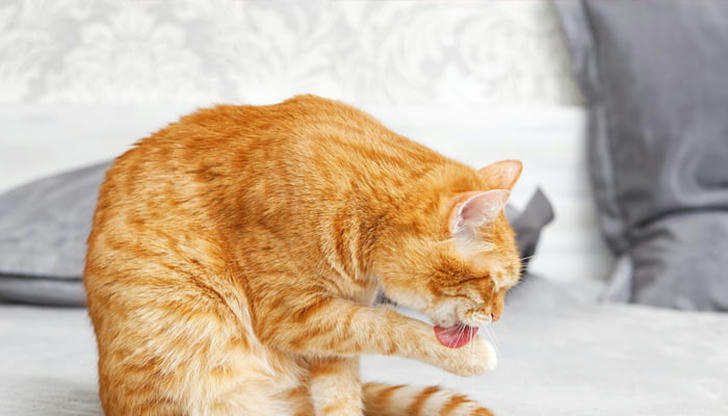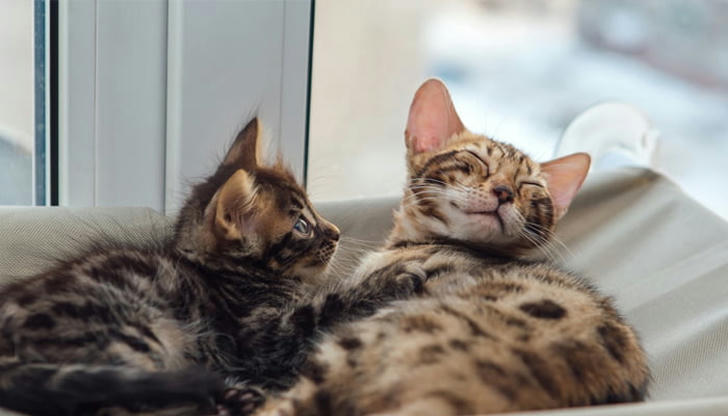Are Male Cats More Affectionate Than Female Cats?
Advertisement

Many people believe that male cats are better pets than females because they tend to be more affectionate, but is this really the case, or just another pet myth? The truth is, the answer isn’t as straightforward as it seems.
Male cats can sometimes be more affectionate than females, but this isn’t always the case. Several factors influence whether a male cat is actually more loving than a female. Let’s take a closer look at these factors together.
Is There Any Evidence Male Cats Are More Affectionate Than Female Cats?
As a veterinarian, I rely on scientific evidence for my decisions. So, is there any research indicating that male cats are more affectionate than females? The short answer is no. While there’s plenty of anecdotal evidence supporting this belief, it’s largely based on personal opinions rather than facts.
One recent study examined how cats interact with children, taking into account both gender and neuter status, and found no link between gender and levels of aggression or affection.
On the other hand, another study did reveal that gender might be associated with certain personality traits, such as aloofness, friendliness, intolerance, and trainability. So if gender alone doesn't dictate affection levels in cats, what does? And why do so many people think that male cats are more loving than females?
What Factors Affect How Affectionate a Cat Is?
As pet owners, our definitions of affection can vary widely. For some, an affectionate cat is a cuddly lap companion, while for others, it may be a cat that prefers to sit nearby without wanting to be petted. This subjectivity makes it difficult to measure affection objectively. However, several factors appear to influence how affectionate a cat is toward their owner, including:
- Breed
- Color
- Neutering status
- Upbringing and socialization
- Presence of other household pets
Neutering Status

Spaying or neutering your cat does affect their hormone levels, but does it create a difference in affection levels between genders? Studies have shown that neutering status does not influence the level of affection cats show toward children. However, it does affect certain behaviors, such as roaming, which can increase the time your cat spends at home—essential for those affectionate moments!
Unneutered male cats with outdoor access often roam in search of female cats. Neutering a male cat typically encourages him to stay home more often. It also reduces unwanted behaviors like fighting over territory and urine spraying.
Intact female cats may also roam for male suitors, but they can become extra affectionate or flirty when in heat. Unfortunately, they may also engage in excessive vocalization during this time, which can be distressing. Neutering helps mitigate these behaviors as well.
Fur Color
The influence of fur color on affection levels in cats is intriguing. Some coat color variations are sex-linked, meaning that certain colors are predominantly associated with either males or females due to their genetic makeup. For example, ginger cats are mostly male, while tortoiseshell (tortie) and calico cats are predominantly female.
Researchers have suggested that coat color might play a role in animal behavior because melanin, the pigment responsible for fur color, is linked to dopamine levels—an important neurotransmitter in the brain.
While this association remains largely hypothetical in cats, it’s notable that tortie and calico cats, which are mainly female, are often perceived as more feisty. A 2016 study from UC Davis even found a higher incidence of negative behaviors in these color variations.
Conversely, ginger cats, primarily male, have a reputation for being friendly. A recent study indicated that orange cats scored highest for friendliness and calmness. This possible connection between coat color, gender, and behavior might explain some of the anecdotal claims about male cats being more affectionate than females.
Breed

Some studies have looked at affection levels and positive human-cat interactions across different breeds, but none have definitively established a gender bias regarding whether male cats are more affectionate than females within specific breeds.
In fact, even among breeds known for being "friendlier," there's significant variation in affection levels between males and females. Much of this variability depends on the individual cat’s personality and upbringing rather than gender alone.
Upbringing, Socialization, and Multi-Cat Households
The environment in which a kitten is raised and their level of socialization can significantly influence how affectionate they become. Cats that have faced unpleasant situations or had limited socialization during their formative years may be more aloof and show less affection compared to those who were well-socialized as kittens.
However, individual personality plays a crucial role; some rescue cats with difficult pasts can turn out to be the most loving lap companions. Currently, there’s no evidence suggesting a gender bias in affection levels based on upbringing and socialization.
In households with multiple cats, affection levels can also be affected by conflicts or disagreements, which can increase stress. Conflicts don’t always manifest as physical fighting, so owners with multiple cats should closely monitor their behavior and consult their veterinarian if they have concerns.
There’s no evidence indicating that gender influences the affection levels of cats in multi-cat households.
Final Thoughts
When choosing a kitten or rescue cat to join your family, it's important to recognize that selecting a male cat doesn’t guarantee he will be friendlier than a female. Many factors influence a cat's affection levels and behavior.
Before bringing a new family member home, it's crucial to consider these factors. Keep in mind that every cat is an individual with its own unique personality. Even if your cat isn't inclined to be a lap cat, there are plenty of ways to foster a strong, lasting bond with your new companion.
